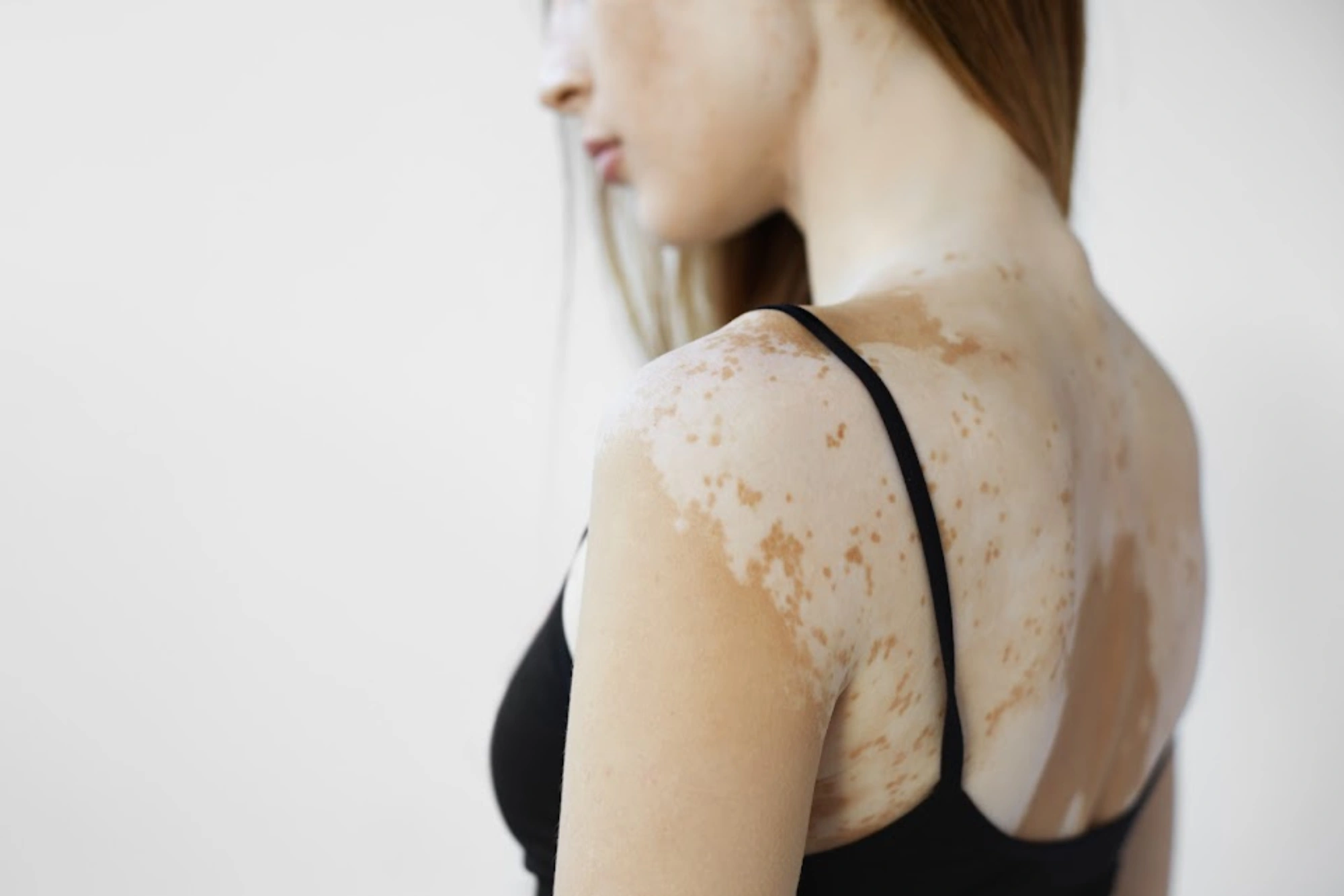Vitiligo is a skin condition characterized by the loss of pigmentation in certain areas of the skin, leading to white patches that can appear anywhere on the body. This occurs when melanocytes, the cells responsible for producing skin pigment, stop functioning or are destroyed. While the exact cause of vitiligo isn’t fully known, it is believed to be related to autoimmune factors, genetics, or environmental triggers. Although not physically harmful, vitiligo can significantly impact an individual’s self-esteem and emotional well-being.
Schedule your consultation today and start your journey to a brighter, more even complexion.

Dermestetics: Experts in Treating Vitiligo
At Dermestetics in Arlington, VA, we are committed to providing personalized care for individuals with vitiligo. Our team of experienced professionals uses cutting-edge therapies and a patient-centered approach to create tailored treatment plans. With our expertise, we aim to minimize the appearance of depigmented areas and help patients feel comfortable and confident in their skin.


Why Treat Vitiligo?
Learn More
Consultation Required?
Yes
Duration of Results
Long-lasting with proper maintenance.
Sessions Needed
The number of sessions depends on the treatment method and the extent of the condition, typically requiring 3–6 sessions or more.
Downtime
Minimal to none.
What It Treats
White or depigmented patches on the skin
Uneven skin tone caused by pigment loss
Progressive depigmentation

How it Works
How it Works
Topical Treatments:
Vitiligo treatment often begins with topical medications, like corticosteroids or calcineurin inhibitors. These medications aim to lessen inflammation and encourage melanocytes—the cells responsible for skin pigmentation—to regain function. Applied directly to the depigmented areas, these treatments are most effective when initiated early, targeting newly developed patches to restore pigmentation.
Phototherapy
Another effective method is phototherapy, particularly narrowband ultraviolet B (NB-UVB) therapy. This involves exposing the skin to specific UV wavelengths, stimulating melanocyte activity, and promoting pigmentation in the affected areas. Phototherapy sessions are typically conducted two to three times per week over several months and are highly effective for widespread or stubborn vitiligo patches.
Surgical Interventions:
Surgical options such as melanocyte transplants or skin grafting may be employed for stable cases of vitiligo that are unresponsive to other treatments. These procedures involve transferring healthy, pigment-producing cells or small skin sections from unaffected areas to depigmented regions. This approach can provide long-lasting results but is generally reserved for individuals whose vitiligo has not progressed for a significant amount of time.
Complementary Treatments
- Hydrating Skin Therapies: Hydrating skin therapies are specialized treatments designed to replenish moisture in the skin, restore its natural hydration levels, and improve its overall health and appearance.
- Vitamin D Supplements: Vitamin D supplements are dietary aids designed to provide the body with additional vitamin D, a crucial nutrient for strong bones, immune system function, and skin health
- Camouflage Makeup Consultation is a personalized service that helps individuals learn how to use specialized makeup techniques and products to conceal skin imperfections effectively.
Get Started
Ready to achieve healthier skin?

















